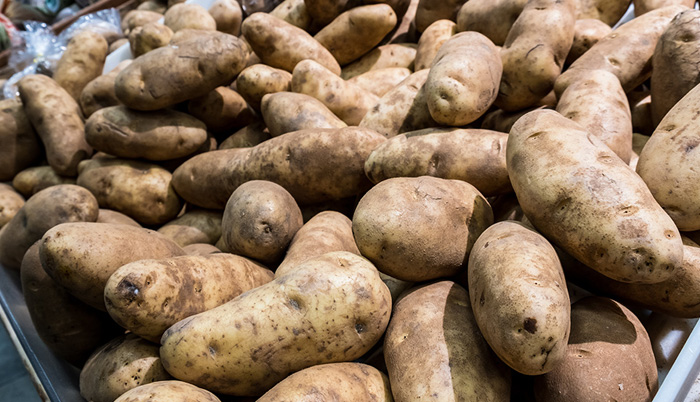![]() Home > Health
Home > Health
These Bacteria Can Support Crop Growth Even Under Dry Conditions

![]() November 16th, 2022 | 15:22 PM |
November 16th, 2022 | 15:22 PM | ![]() 349 views
349 views
NATURALNEWS
Potatoes are often grown using chemical fertilizers, which not only increase the cost of production but also contaminate the soil and groundwater. With this in mind, Slovenian researchers looked at whether plant growth-promoting rhizobacteria can be used to increase potato yield in place of commercial fertilizers.
Researchers from the University of Ljubljana in Slovenia specifically looked at two species of rhizobacteria originating from Argentina – Pseudomonas flourescens and Azospirillum brasilense. Previous studies have already identified both species as belonging to a special group of microbes characterized as plant regulators.
The ability of P. flourescens to improve potato yields has already been observed in a previous study. Meanwhile, A. brasilense has been found to help improve potato microclonal reproduction.
For their own study, the Slovenian researchers used a commercial product called Rhizoflo Premium, which contains both P. flourescens and A. brasilense.
Using rhizobacteria to increase potato yields
To better understand how a solution containing both P. flourescens and A. brasilense could help increase potato yield, the researchers tested Rhizoflo Premium on three varieties of potatoes.
The varieties were chosen because each had different longevity of growth periods. The first, “Morgana,” was a mid-early variety; the second, “Sunita,” was an early variety; and the third, “Primabelle,” was a very early variety.
The three varieties were sown in experimental plots divided into three blocks. Two of the blocks were given one of two different treatments of Rhizoflo Premium, while the third served as a control.
Potato tubers that had been soaked for 10 to 15 minutes in a three percent solution of Rhizoflo Premium were planted in the first block. The second block contained tubers that were sprayed with the product using a backpack sprayer. Meanwhile, tubers in the control group were neither soaked nor sprayed with the product.
The experiment was conducted during a European summer that was unusually hot and dry. The researchers took into consideration climate data obtained from the bulletin Naše okolje, which is published monthly by the Slovenian Environment Agency.
Comparison data was calculated according to the average values from the years 1981 to 2010. The researchers noted that in 23 of the 15 total 10-day periods in the year of the experiment, average temperatures were higher than that of the period from 1981 to 2010. They also recorded less precipitation compared to those years.
The researchers found that all three varieties of potato produced greater yields when given the solution with P. flourescens and A. brasilense. The best results were found in the first block, where the tubers were soaked. The researchers found that, in this block, the Morgana variety was 17 percent more productive, the Sunita variety was 27 percent more productive and the Primabelle variety was 31 percent more productive than those in the control block.
While productivity also increased in the second block, the researchers noted that it was only the Primabelle variety that produced a consistently higher yield. It produced 24 percent more potatoes compared to the control.
Based on these results, the researchers concluded that treatment with a bacterial mixture containing P. flourescens and A. brasilense is a great way to increase potato yield under dry conditions.
The study has particular implications in Europe, where the number of allowed phytopharmaceutical products has been decreasing due to environmental concerns. Bacterial treatments involving P. flourescens and A. brasilense could help potato farmers in the region continue to grow the crop – the third most important agricultural plant species in the world – without having to sacrifice yields.
Source:
courtesy of NATURALNEWS
by Franz Walker
If you have any stories or news that you would like to share with the global online community, please feel free to share it with us by contacting us directly at [email protected]